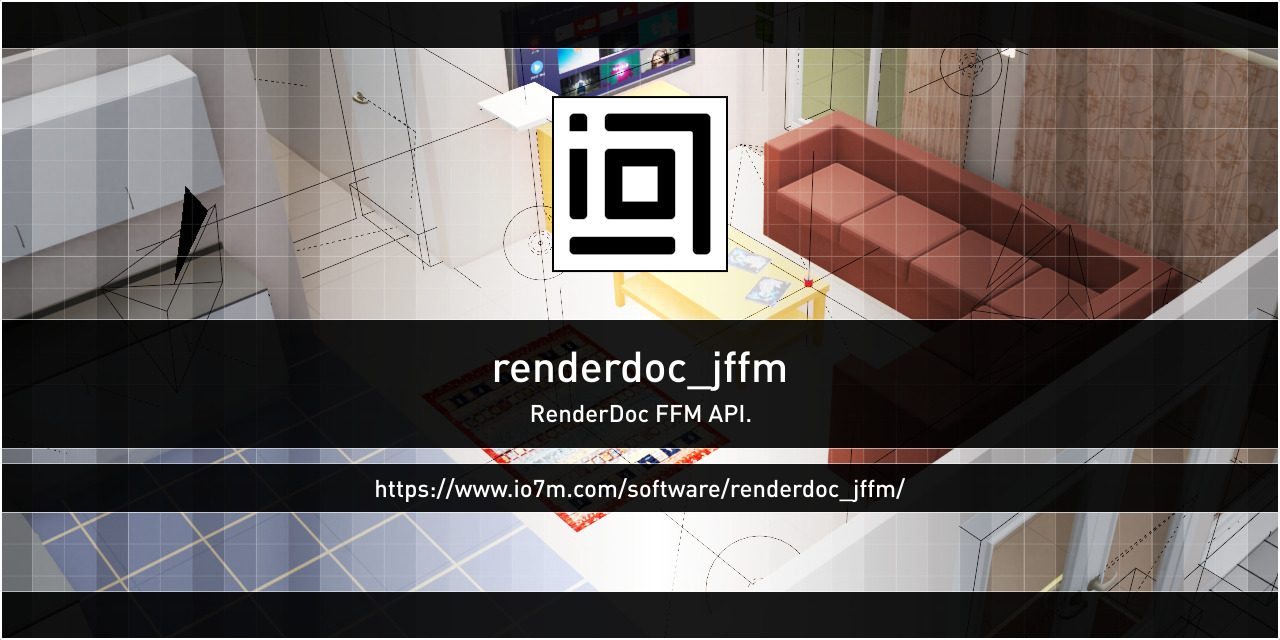| JVM | Platform | Status |
|---|---|---|
| OpenJDK (Temurin) Current | Linux |  |
| OpenJDK (Temurin) LTS | Linux |  |
| OpenJDK (Temurin) Current | Windows |  |
| OpenJDK (Temurin) LTS | Windows |  |
A Java interface to the RenderDoc API.
- A friendly Java interface to the RenderDoc API.
- JPMS-ready.
- ISC license.
When running your application, you must allow access to the
FFM API for the module
com.io7m.renderdoc_jffm.core:
$ java --enable-native-access=com.io7m.renderdoc_jffm.core ...
Run your application from RenderDoc. RenderDoc works by injecting a native
library into your application. Then, inside your application, call
RenderDoc.open():
try (final var doc = RenderDoc.open()) {
...
}
The obtained RenderDocType interface is a type-safe, memory-safe interface
to the API exposed by the RenderDoc native library. The interface allows for
setting options and triggering captures.
The open() method will raise an IOException with a useful error message
if the renderdoc native library is not present in the current application
process.
It may be necessary on some systems (notably Fedora Linux) to set the
LD_LIBRARY_PATH environment variable. It seems that some packaging systems
place renderdoc into its own subdirectory under /lib64:
$ file /lib64/renderdoc/librenderdoc.so
/lib64/renderdoc/librenderdoc.so: ELF 64-bit LSB shared object, x86-64, version 1 (SYSV), dynamically linked, BuildID[sha1]=c8dcf24af968317d361ea1bb021f8a5919fefb1f, stripped
The Java FFM API will use the system's default library path, and this tends
not to contain /lib64/renderdoc on those systems.
$ export LD_LIBRARY_PATH=/lib:/lib64:/lib64/renderdoc




